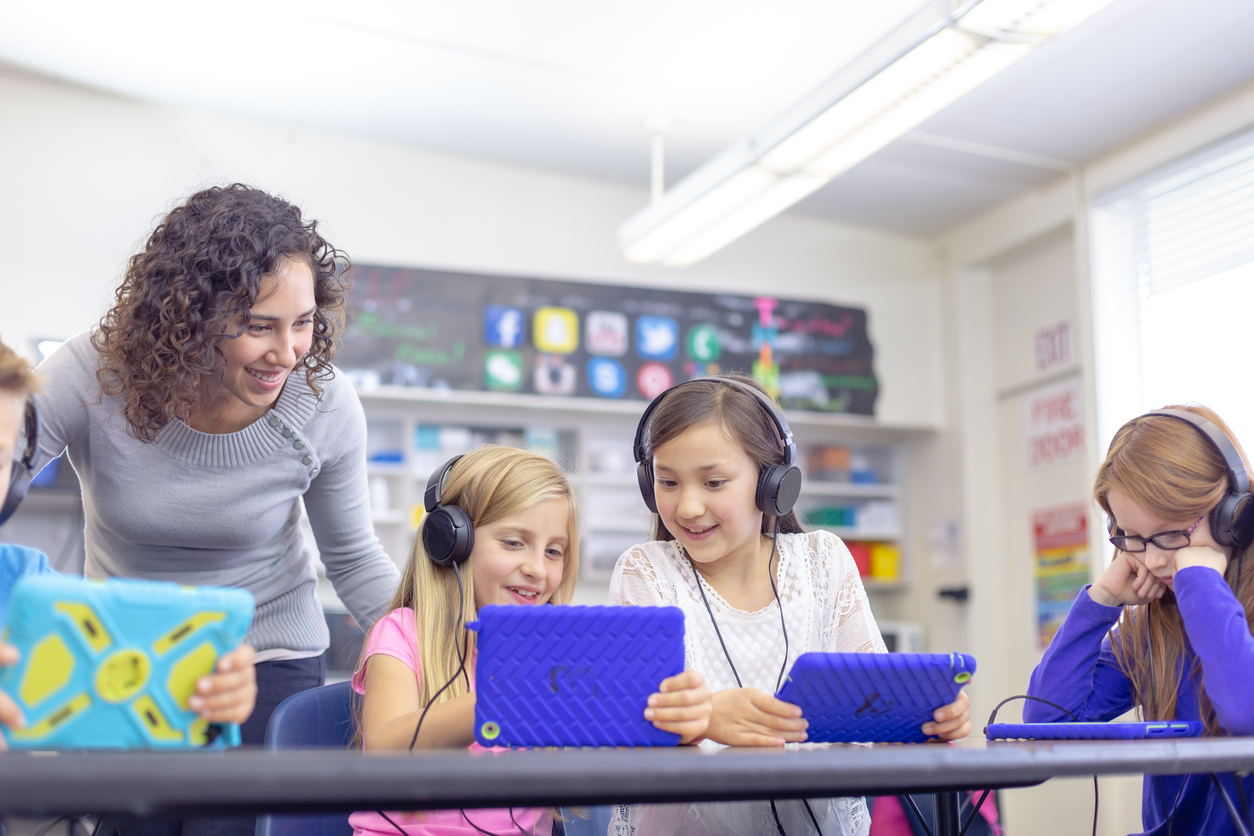Comprehensive Primary Science Tuition Singapore for Primary School Students
Comprehensive Primary Science Tuition Singapore for Primary School Students
Blog Article
Checking Out the Different Mentor Strategies in Key Science Education Today
Inquiry-based discovering, hands-on experiments, and the assimilation of modern technology are redefining exactly how instructors involve young minds. Additionally, collaborative techniques and differentiated guideline are being used to provide to the diverse needs of trainees, enhancing both interaction and understanding.
Inquiry-Based Learning
Inquiry-Based Knowing (IBL) is an instructional strategy that encourages trainees to discover scientific concepts with wondering about, examination, and hands-on testing. This technique emphasizes the role of trainees as active individuals in their discovering, advertising critical reasoning and analytical abilities. By engaging with real-world questions, pupils become motivated and curious, which enhances their understanding of scientific concepts.
In IBL, instructors act as facilitators, leading students as they browse their queries rather than supplying information straight. This student-centered method enables differentiation, accommodating numerous discovering speeds and styles. Students establish skills in developing theories, creating experiments, and examining information, which are critical for clinical literacy.
Additionally, IBL promotes collaboration among trainees, urging them to share searchings for and concepts. This cumulative query advertises social abilities and a feeling of neighborhood within the class. The procedure of query encourages resilience, as pupils discover to welcome failure as a tipping stone toward understanding.
Hands-On Experiments
Hands-on experiments are an important part of efficient scientific research education, complementing the principles of inquiry-based discovering. These experiments enable pupils to engage straight with scientific ideas, fostering a deeper understanding through experiential understanding. By manipulating products and observing results, young students can comprehend abstract theories in tangible methods.
Such activities advertise essential thinking and problem-solving skills, as trainees assume outcomes, conduct experiments, and analyze outcomes. This process encourages them to ask concerns, improve their understanding, and establish a clinical state of mind. Hands-on experiments can be customized to varied understanding designs, guaranteeing that all pupils have the chance to involve meaningfully with the material.
Furthermore, hands-on experiments frequently urge partnership amongst peers, promoting team effort and communication abilities. Functioning in teams makes it possible for students to share concepts, discuss searchings for, and learn from each other, which improves their overall instructional experience.
Including hands-on experiments into the key science curriculum not just improves the finding out environment but likewise cultivates a long-lasting rate of interest in science. By proactively getting involved in their education, students are more probable to create a passion for clinical inquiry that expands beyond the class.

Innovation Combination
Incorporating modern technology right into key science education and learning has become increasingly necessary in cultivating student engagement and boosting discovering results. Using electronic tools, such as interactive simulations, digital laboratories, and academic software, gives students with opportunities to check out clinical concepts in cutting-edge ways. These sources promote a deeper understanding of complex subjects by permitting students to visualize and adjust variables that would be impractical in a typical class setup.
Additionally, technology combination urges individualized finding out experiences. Students can progress at their own rate, taking another look at challenging concepts through multimedia sources, which cater to different learning styles. This flexibility not only supports individual development yet likewise cultivates a feeling of autonomy in students.
Additionally, technology functions as a bridge to real-world science, connecting trainees with present research study and professional payments. Access to clinical journals and online data sources expands students' viewpoints on scientific inquiry and fosters essential assuming skills.
Collaborative Knowing
Collective understanding plays a vital function in main science education by promoting team effort and communication abilities amongst pupils. This approach urges students to work with each other, share understanding, and participate in analytical, which boosts their understanding of clinical ideas. By joining group activities, pupils find out to verbalize their ideas, pay attention to diverse point of views, and discuss services, every one of which are important skills in both academic and real-world contexts.

Research study shows that collaborative discovering can lead to increased motivation and interaction in scientific research topics, as students find satisfaction in shared experiences (primary science tuition Singapore). In addition, this technique prepares trainees for future collaborative undertakings, equipping them with the skills required for effective teamwork in college and specialist environments. Eventually, welcoming collective learning in key scientific research education and learning can dramatically enhance the understanding experience and advertise a deeper understanding of clinical questions
Set Apart Guideline

Separated instruction can show up in different methods, such as differing the material, procedures, or products of understanding. Teachers may utilize tiered jobs that give differing levels of complexity, permitting trainees to work at navigate to this website their particular preparedness degrees. Additionally, versatile organizing approaches can help with partnership among pupils with different abilities, cultivating peer understanding.
Evaluation plays a critical function in this strategy, as it educates guideline and aids instructors recognize each student's distinct needs. Formative analyses, such as monitorings and tests, can guide teachers in changing their approaches to enhance learning outcomes. primary science tuition Singapore. Ultimately, by implementing differentiated instruction in key scientific research education, instructors can grow a much more efficient and equitable learning environment, empowering all students to reach their full potential in recognizing clinical phenomena
Final Thought
In summary, the diverse teaching techniques in key science education, consisting of inquiry-based understanding, hands-on experiments, technology combination, joint understanding, and set apart direction, jointly add to a more reliable knowing setting. These approaches promote vital reasoning, analytic skills, and a deeper understanding of scientific principles. By implementing these strategies, you could look here educators can create helpful and interesting classrooms that deal with the varied needs of students, inevitably fostering a long-lasting passion in scientific research and boosting academic achievement.
Inquiry-Based Discovering (IBL) is a pedagogical method that urges pupils to explore scientific principles with doubting, investigation, and hands-on testing.Collaborative learning plays a crucial duty in main science education by cultivating synergy and communication skills among trainees.Research suggests that collective knowing can lead to enhanced inspiration and involvement in scientific research topics, as pupils find pleasure in shared experiences.In cultivating a comprehensive knowing setting, differentiated guideline emerges as a crucial technique to suit the diverse requirements and capabilities of pupils in main scientific Website research education and learning. Inevitably, by executing differentiated guideline in key scientific research education, teachers can grow a more effective and fair learning atmosphere, empowering all trainees to reach their complete capacity in comprehending scientific sensations.
Report this page